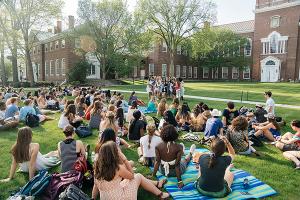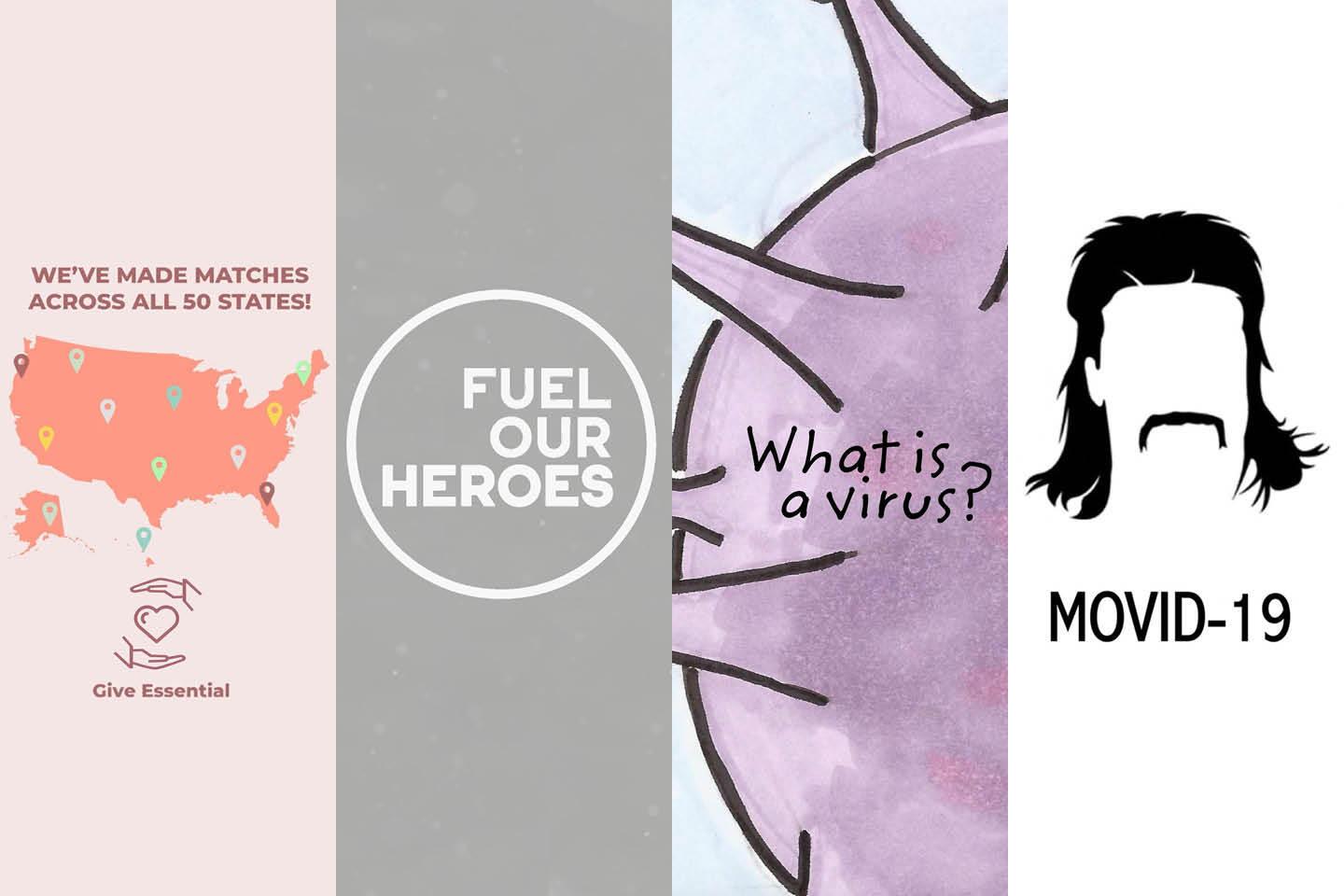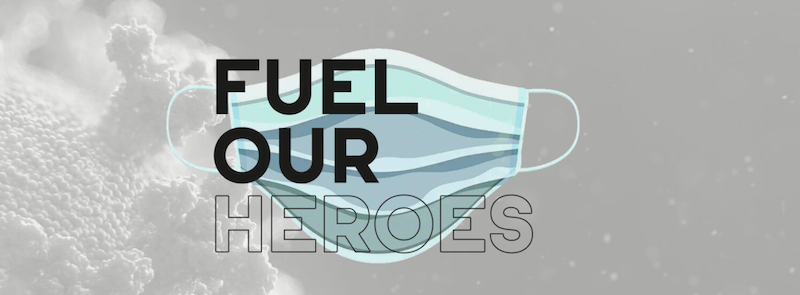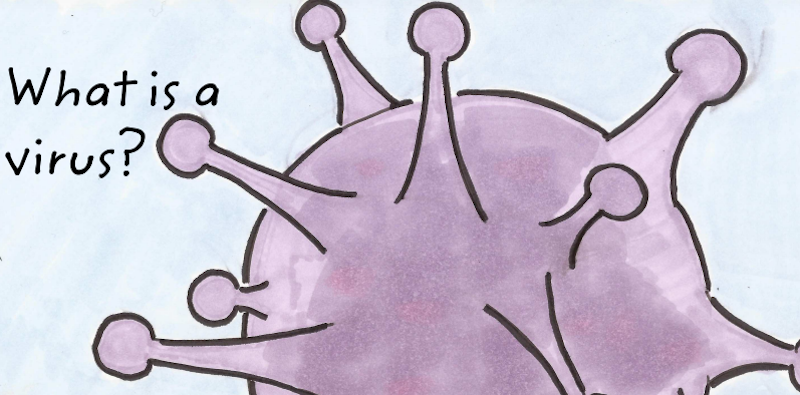
Dartmouth College Fund: Financial Aid
In uncertain times, one thing is certain: Dartmouth stands by our students. Give now to help students in this moment.
Sent home for the spring term, these students leaped into action.

Scores of Dartmouth students and young alumni have put their leadership skills to work in recent months by helping communities respond to the pandemic—demonstrating how they’re already becoming the adaptable, empathetic leaders that our world desperately needs.
Here are four examples of students and young alumni stepping up to serve people in need during the COVID-19 pandemic.
Roommates Amy Guan ’20 and Rine Uhm ’22 established Give Essential, an organization that links essential workers with donors who can provide them with much-needed items. Donors can provide items to protect workers, such as protective gear and soap; but also household products, gift cards, and even items for homebound children, including educational materials, games, and puzzles.
The idea for Give Essential came from a course that Amy and Rine had taken together: “Social Entrepreneurship,” taught by Andrew Samwick, the Sandra L. and Arthur L. Irving ‘72a, P’10 Professor of Economics, which explores how social enterprises help tackle the problems of poverty.
“COVID began ramping up barely a week after the course ended, so these ideas were fresh in our minds when we went home. We ended up thinking a lot about how we could apply what we had learned,” says Amy. The pair hit on the idea of linking donors and essential workers in need, and Amy immediately started adapting a website she had created for a computer science course two years earlier to become the Give Essential website, which went live on April 10.
“We were hit with a flood of essential workers the first weekend, and spent the rest of the week figuring out how we were going to find donors to match with them,” she says. “We texted all of our friends and family, emailed and called every organization in our neighborhoods, and posted the link in every Facebook COVID support group we could find. Our first donor came from probably the hundredth Twitter DM we sent!”
Give Essential invites essential workers—which the organization describes as “anyone who has to risk their health in order to make ends meet and/or is unable to work from home”—to sign up online for materials that they need. The site then matches them with donors who have pledged to help. With the help of 150 volunteers, many of them Dartmouth students, the organization to date has served more than 20,000 workers in all 50 states. Along the way, Give Essential has garnered extensive media attention, including articles in People magazine and the Huffington Post.
“The amount of help and support we’ve received from our communities has been heartwarming and unbelievable,” says Amy. “It’s been humbling to read so many stories and meet the frontline workers who are doing so much for the rest of us. I’m beyond grateful to be able to thank them and make a small impact in their lives.”
 Fuel Our Heroes: Focused on Health-Care Frontliners
Fuel Our Heroes: Focused on Health-Care Frontliners“My friends and I were back home on spring break, and we were reading news stories that essentially said, ‘This is your generation’s World War II. Your parents and grandparents went off to war, and your job is to stay at home,’” says Sacha Pritzker ’22. “Well, that was true for most of us. But there’s one segment of our population—our health care workers—who were going off to battle every day, fighting on the front lines and risking their lives. So, my friends and I began to think how we could help them and show our appreciation.”
Sacha and three friends contacted hospitals to learn what items health care workers needed most and received this advice: personal protection equipment, groceries, and gas cards to help with their commute to and from work. The students established a fundraising organization called Fuel Our Heroes and established a partnership with UCLA Health, a network of hospitals in the Los Angeles area.
Soon after they had Fuel Our Heroes up and running, Sacha and his friends started receiving inquiries from college students in other cities who also wanted to support workers in their local hospital. The UCLA Health-Fuel Our Heroes partnership became a model for fundraising and securing material.
Now with approximately 100 student-volunteers operating fundraising teams in 15 U.S. cities and Toronto, Fuel our Heroes has raised more than $250,000 for health care workers.
“It’s exciting that this campaign was put together by a ton of college students around the country who were excited and engaged,” says Sacha.
 Viruses Explained for Children and Parents
Viruses Explained for Children and ParentsMillions of parents in recent months have found themselves much more involved in their children’s schooling than they had ever anticipated. One of the questions many of them have fielded from their children: What’s a virus?
Between completing papers and preparing for exams during the spring term, Hannah K. Margolis ’20 and Emily J. Morin ’20 produced a book that answers that specific question. What Is a Virus—written by Hannah, illustrated by Emily, and available for free online—simply and thoroughly explains what viruses are and how soap fights them.
“With the shutdown of schools, I became incredibly frustrated that all over the country, younger students were suddenly having to study at home and didn’t completely understand why. I know that many parents probably haven’t learned about viruses since high school biology, so it might be difficult for them to answer questions from their kids about what is going on or how to stay safe,” says Hannah, who is now working at the National Institutes of Health. “All of the sudden, there were people coming to the scientific community asking to be informed.”
Hannah wrote the first draft of the book in two days, followed by rounds of revisions with Emily that sometimes had to be put on hold for weeks at a time due to their studies.
“The response has been pretty positive,” says Hannah. “Parents get back to me and say they learned a thing or two from the book, too, not just their kids! That was my biggest hope for the book, so I’m happy it’s fulfilling its purpose.”
Sitting at home during what should have been their final spring term in Hanover, three seniors—Clay Kirwood, James McLaughlin, and Nate Stuart—and Pete Fucigna ’21 found a way to help Americans who were going hungry due to the pandemic. It was an idea right under their noses. They created MOVID-19, a mullet and mustache Instagram challenge.
“At first, the four of us thought it would be fun to ride out the isolation by growing our mustaches or mullets. We weren’t seeing anyone in public anyway,” says Clay. “Then, as COVID spread and affected more communities and more of our country, we decided we could create a fundraiser to help people who were struggling with food bills.”
Starting with the four organizers, each MOVID-19 participant challenged 10 other people to join the challenge by posting selfies of themselves—sporting their mustaches or mullets—on Instagram and asking friends and family members to make a gift in recognition of their marvelous hair.
Nearly 500 men and women participated in MOVID-19 over two months, raising more than $22,000 for Feeding America, which operates 200 food banks across the U.S. Each dollar that Feeding America receives provides 10 meals.
“We had a ton of fun doing it,” says Clay. “And it allowed us to end our Dartmouth career on a positive note rather than focusing on the unfortunate departure.”